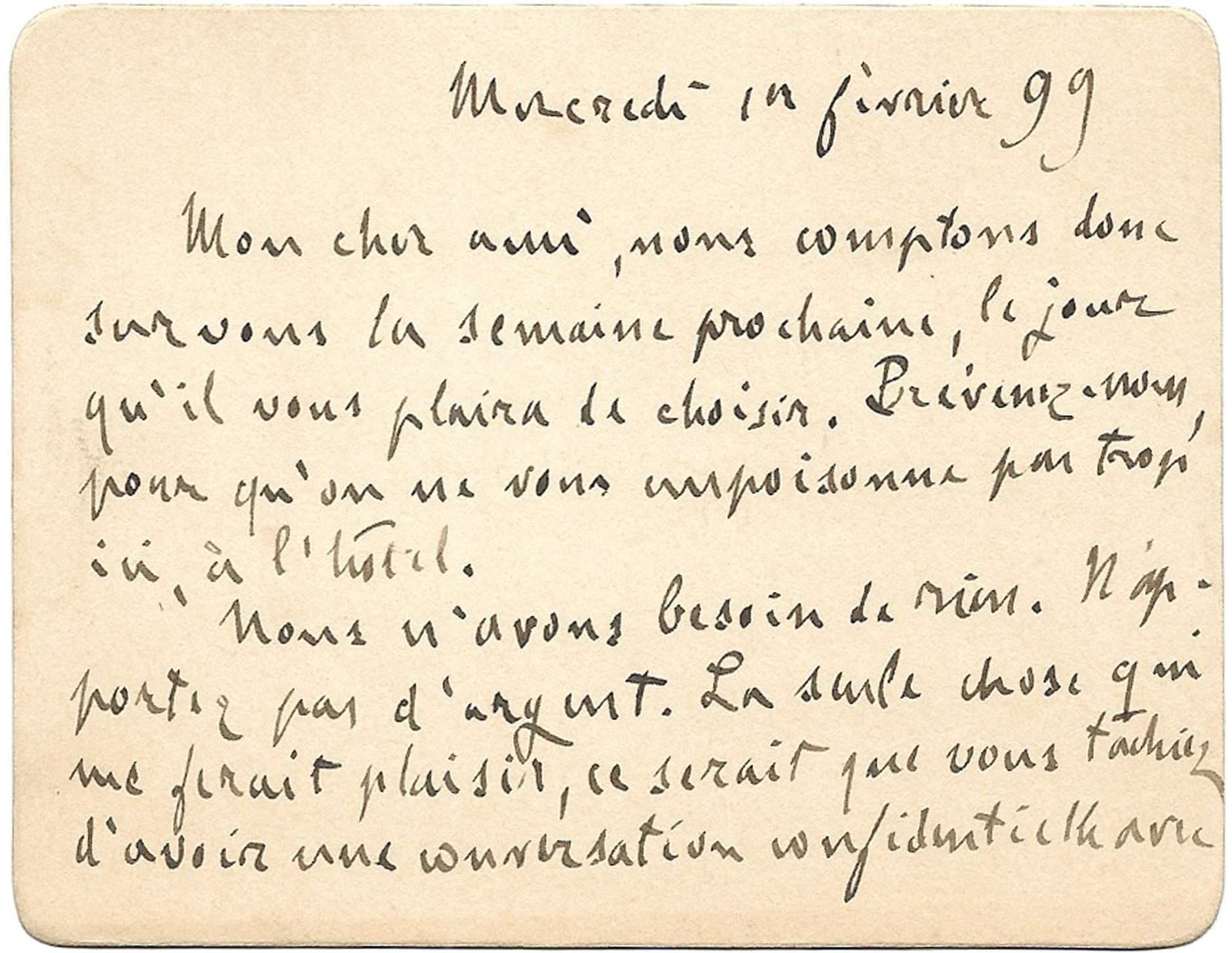[AFFAIRE DREYFUS] ZOLA, Émile (1840-1902)
Autograph card-letter signed « Z » [to Eugène Fasquelle]
[Queen’s Hotel, Upper Norwood], 1st February [18]99, 2 pp. petit in-12°
« The horrible waste we are going through… »
Fact sheet
[AFFAIRE DREYFUS] ZOLA, Émile (1840-1902)
Autograph card-letter signed « Z » [to his publisher Eugène Fasquelle]
[Queen’s Hotel, Upper Norwood], 1st February [18]99, 2 pp. petit in-12°
From his land of exile, Zola tries to get news about his situation from his lawyer
« Mon cher ami,
Nous comptons donc sur vous la semaine prochaine, le jour qu’il vous plaira de choisir. Prévenez-nous pour qu’on ne vous empoisonne pas trop ici, à l’hôtel.
Nous n’avons besoin de rien. N’apportez pas d’argent. La seule chose qui me ferait plaisir, ce serait que vous tâchiez d’avoir une conversation confidentielle avec Labori [l’avocat de Zola pour son procès, suite à la publication de « J’accuse… ! »], en lui demandant, pour moi, ce qu’il peut savoir d’exact sur la situation. Me Mornard ne pourrait-il pas le renseigner un peu, à mon intention. Vous devez comprendre combien j’ai soif de renseignements précis, au milieu de l’effroyable gâchis que nous traversons. – […]. Nos vives amitiés à votre femme, nous vous embrassons, vous et les vôtres. Z
J’ignore encore si les Mirbeau sont arrivés aujourd’hui, nous les attendons ici demain. »
Lodged since October 1898 at the Queen’s Hotel, in the suburbs of London, Zola has continued his exile since the confirmation of his conviction at Versailles on July 18 of the same year. Removed from the tumult of Paris, the writer expresses here a pressing need to know more about his situation and the course of the Dreyfus affair, which continues to unleash passions. At the same time, the magistrates of the Court of Cassation were in the midst of examining the Dreyfus case, which Henry Mornard, the defence lawyer, was working on. The events of the following days and weeks, such as the brutal death of Félix Faure, allowed the Dreyfusards to hope for a favourable outcome.
After succeeding Charpentier, Fasquelle became Zola’s publisher in 1896. He also served as his “banker” and gave him, as soon as the writer felt the need, sums from his royalties.
Unpublished letter
